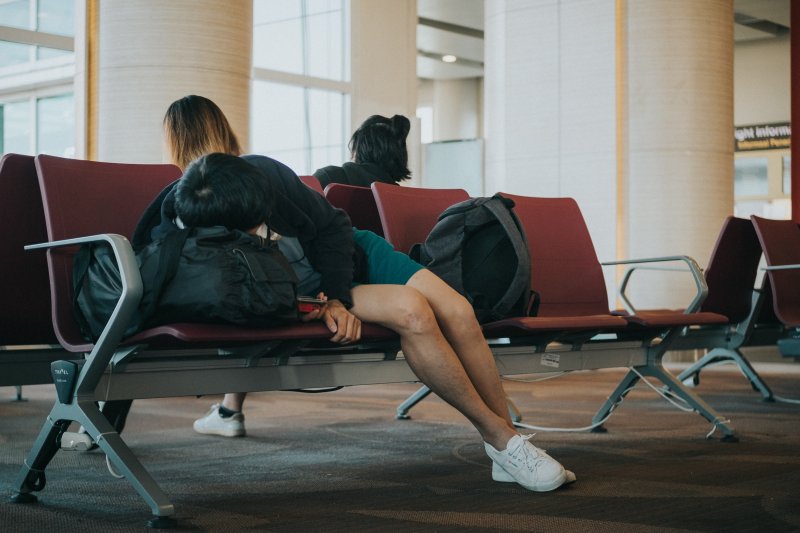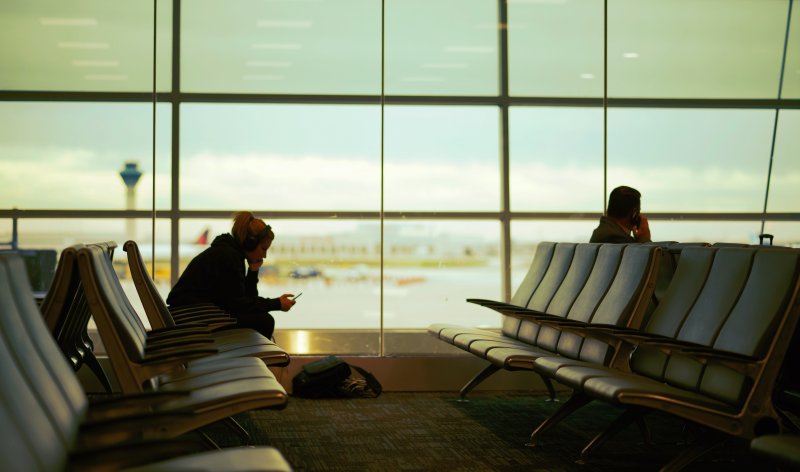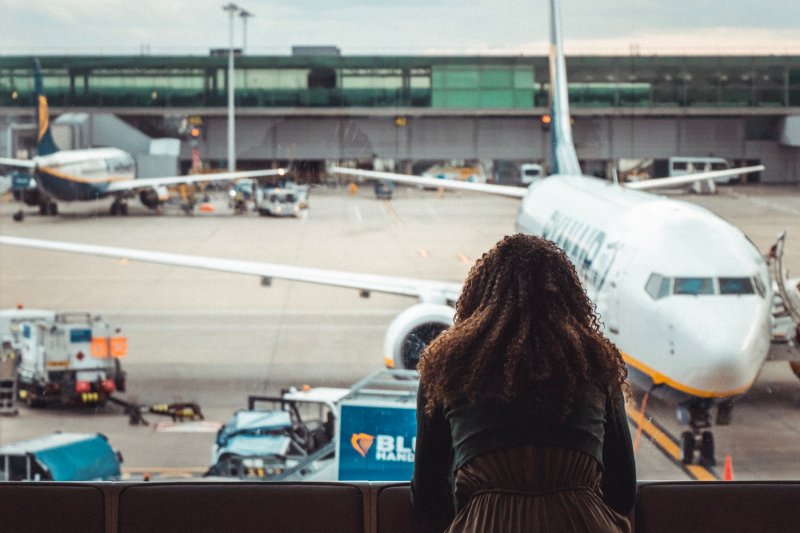'What's jetlag?' Don't worry, we will also answer that and much more!

What is Jetlag?
Jetlag, also know as the rapid timezone change syndrome, according to Wikipedia, is an imbalance produced between a person's internal clock (which marks the periods of sleep and wakefulness) and the new schedule established when travelling long distances across multiple time regions, or in people living in countries that change time in summer and winter.
What causes this penomenon?
In order to face this evil that afflicts us so much when we travel, it is necessary to understand what is behind the scenes. It happens that our bodies are naturally programmed to do a number of things over a 24-hour time period, such as eating and sleeping. These in-built routines are known as circadian rhythms, and when we fly they are disorganised.
Advancing through time zones can wreak havoc on our bodies, causing extreme fatigue, along with indigestion, intestinal problems, loss of appetite, loss of memory, and concentration issues. These are the most common effects of jet lag, but different people can be affected in different ways. And if your next question is "how long does it take to recover from jetlag?" We are sorry but there is no concrete answer. It is key to know that these consequences can vary according to age, healthiness, and stress levels. Here are some tips for you to escape that Jetlag once and for all.
1 - Rest well before travelling

Photo @joyceromero
Sleeping well the night before your trip is essential. Often, people underestimate long and intense journeys such as long-distance flights and end up sleeping only a few hours before a long flights, either due to pre-holiday excitement or a deliberate attempt to get tired so that they can sleep during the flight. Big mistake. Last minute changes to your routine will make it harder to adapt to new time zones and overcome jet lag. Sleeping well before your slight will leave you better equipped to face the time lag.
2 - Break up your journey

Photo @kalegin
Try to organise your flights so that you have a layover. This way your body has more time to adapt to the new routing. If possible, try to by a flight with stops in the middle so the arrival is not so abrupt. This can also reduce the cost of the flight.
3 - Do not drink coffee

Photo @vanveenjf
Maybe you already know the effects of coffee? Simply, caffeine is a chemical compoud that naturally resides in coffee. Eating it wakes us up and activates our body. Not drinking coffee is a good idea if you want to avoid jetlag. The same goes for carbonated drinks such as coca cola or red bull. These artificial stimulants will affect your ability to sleep and increase the time it takes you to recover from jetlag. Your body works best when hydrated, so drinking plenty of water is a great way to offset the effects of jetlag.
4 - Eat well

You better be prepared to take care of your body because it's about to go through a difficult time. Drink lots of water and eat lightly but well, the night before your flight. Prepare something to snack on like nuts or fruits. Do not force yourself to eat if you are not hungry, but eat when the food arrived on the flight.
If drinking a glass of wine helps you calm your nerves before flying, then do so. But don't overdo it! If you drink too much you will become dehydrated. In conclusion, do not skip meals, and eat in a controlled manner.
5 - Exercise

Photo @dylan_nolte.
Excercising on a regular basis is a habit that has incredible health benefits both short and long term. If you are someone who likes to excercise, do not reduce your exercise before travelling. The days before your flight, you must increase the dose if you can, to generate a larger energy expenditure. As a consequence, your endorphins will increase. The same during the flight. Almost all airline magazines will have a section dedicated to simple exercises for long-distance flights. The aim of them is to raise blood circulation.
6 - Mentally prepare

Photo @benwhitephotography
Mentally prepare yourself for your body's reaction to travelling long distance, and that it will last for the first few days of your travel. You must realise that, if you really know yourself well, the jetlag will be inevitable whatever you do. Therefore, try to be aware and face this reality so that it does not affect you too much.
7 - Set your watch

Photo @@anacristina
The Days before a trip are key to gradually adjusting your internal clock. So you can adjust your routine to adapt to the new timezone. For example, if you usually wake up at 8 in the morning, and you will have to wake up earlier at your destination, you can start waking up at 7:30am, and then at 7am, and so on until the day of your trip. Another practical example is that when you get on the plane, you must change the time on your watch to that of your destination, to align yourself psychologically.
8 - No pills

Photo @pinamessina
"No Pills", that is, no sleeping pills. Pilots and aircraft personnel often take melatonin to fight jet lag. Melatonin is a hormone that our body produces at night. These pills do not help the body to adapt to a new sleep pattern, they simply induce you into a deep sleep. Take them if all the other advice we have given you does not work for you.
9 - Sunbathe

Photo @overdriv3.
We are not talking about getting a tan for the summer, or looking good at the airport. We mean that natural light should be maximised because your internal clock is directly related to the sun. Therefore, walk on the sunny side of the street (after putting on sunscreen), open the windows and absorb the Vitamin D! This will help you to stay awake with less effort.
10 - Be patient

Photo @iamarthuredelman
You must be patient with the biological processes of your body, and not despair if you travel companion recovers in less time than you. Everyone's body is different, so don't panic. After a long trip, it is recommended to give your body and mind space to adapt for the return. Although it's tempting to spend as much time as possible on your vacation, it's sometimes useful to leave an extra day or two to stay home after the trip and get used to your old timezone and routine.
Now you know what Jetlag is and how to deal with it. From now on, it will be up to you to combat it so that your next travel experience is positive and not ruined by a change in timezone. We hope this article has been useful and enjoyable. If you know someone who is suffering from these symptoms then you can share it with them and help a friend out.
We've included some more articles below for you to check out!
- How to make friends in hostels
- Thailand on a Budget: the ultimate travel guide





